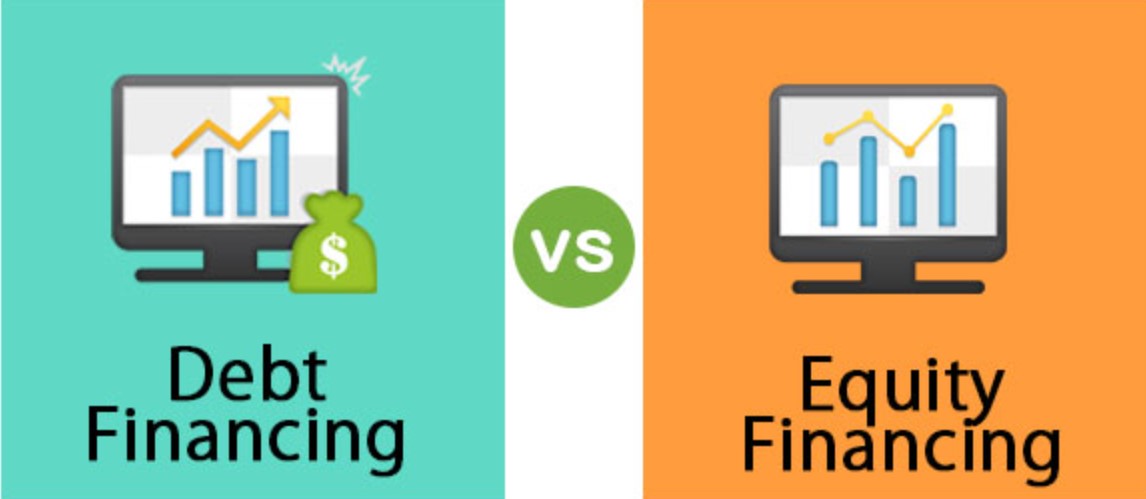Financing is a critical aspect of any business operation, whether you are a startup or an established company looking to expand. The two primary types of financing available are debt & equity financing. Each has its own advantages and disadvantages, and the right choice depends on your specific business needs, financial situation, and long-term goals.
In this article, we’ll explore both options in detail to help you decide which is right for you. By understanding the nuances of debt and equity financing, you can make an informed decision that best supports your business’s growth and sustainability.
Debt & Equity Financing
When deciding how to finance your business, it’s essential to understand the fundamental differences between debt & equity financing. Each option has unique characteristics that can significantly impact your company’s financial health and growth trajectory.
Understanding Debt Financing
Debt financing involves borrowing money that you will need to pay back over time, with interest. This can come in the form of loans, bonds, or credit lines. Here are the key elements to consider:
1. Control and Ownership:
- Retention of Ownership: With debt financing, you retain full ownership and control of your business. The lender does not get a stake in your company.
- Repayment Obligation: You must repay the principal amount along with interest, regardless of your business performance.
2. Cost of Debt:
- Interest Rates: The cost of debt is determined by the interest rates, which can be fixed or variable. The rates depend on the creditworthiness of your business and market conditions.
- Tax Deductibility: Interest payments on debt are usually tax-deductible, which can lower your overall tax burden.
3. Risk and Leverage:
- Financial Risk: Taking on too much debt increases financial risk, as you are obligated to make regular repayments. Failure to do so can lead to bankruptcy.
- Leverage: Debt can be used to leverage your business operations and amplify growth, provided it is managed wisely.
Understanding Equity Financing
Equity financing involves raising capital by selling shares of your company to investors. This can include venture capital, angel investors, or public stock offerings. Here are the essential aspects:
1. Ownership and Control:
- Dilution of Ownership: Equity financing means giving up a portion of ownership in your company. This can dilute your control, especially if large amounts of equity are sold.
- Shared Profits: Investors expect a return on their investment, typically in the form of dividends or increased share value.
2. Cost of Equity:
- No Repayment Obligation: Unlike debt, equity does not need to be repaid. However, investors will expect a return on their investment.
- Expensive in the Long Run: While there are no regular repayments, equity can be more expensive in the long run because you are giving away a portion of your profits.
3. Risk and Growth:
- Lower Financial Risk: Since there are no mandatory repayments, equity financing poses less financial risk compared to debt.
- Growth Potential: Equity financing can provide substantial capital for growth without the burden of debt repayments.
Comparing Debt & Equity Financing
To determine which type of financing is best for your business, consider the following factors:
1. Business Stage and Size:
- Startups: Often lean towards equity financing because they may not have the cash flow to manage debt repayments.
- Established Businesses: May prefer debt financing as they have steady revenues to cover interest payments and want to avoid diluting ownership.
2. Financial Health:
- Creditworthiness: Businesses with strong credit ratings can secure loans at favorable rates, making debt financing more attractive.
- Cash Flow: Companies with stable cash flows are better suited for debt financing as they can handle regular repayments.
3. Growth Goals:
- Aggressive Growth: Equity financing is suitable for businesses aiming for rapid expansion and willing to share ownership in exchange for capital.
- Controlled Growth: Debt financing allows for growth without giving up control but requires careful management of financial obligations.
4. Investor Relations:
- Strategic Partnerships: Equity investors can bring valuable expertise, connections, and strategic advice, beyond just capital.
- Autonomy: Debt financing allows for more autonomy, as lenders typically do not get involved in business decisions.
Conclusion: Making the Right Choice
Choosing between debt & equity financing is a significant decision that can impact the future of your business. Assess your business’s current stage, financial health, and long-term goals. For startups and businesses seeking rapid growth, equity financing may be more suitable despite the dilution of ownership. Established businesses with steady cash flows may find debt financing more advantageous due to tax benefits and retained control.
Ultimately, the right choice depends on your unique circumstances and the strategic direction of your business. Consider consulting with financial advisors or professionals to make an informed decision that aligns with your business objectives. Remember, a balanced approach may sometimes be the best strategy, utilizing both debt & equity financing to optimize your capital structure and drive sustainable growth.


